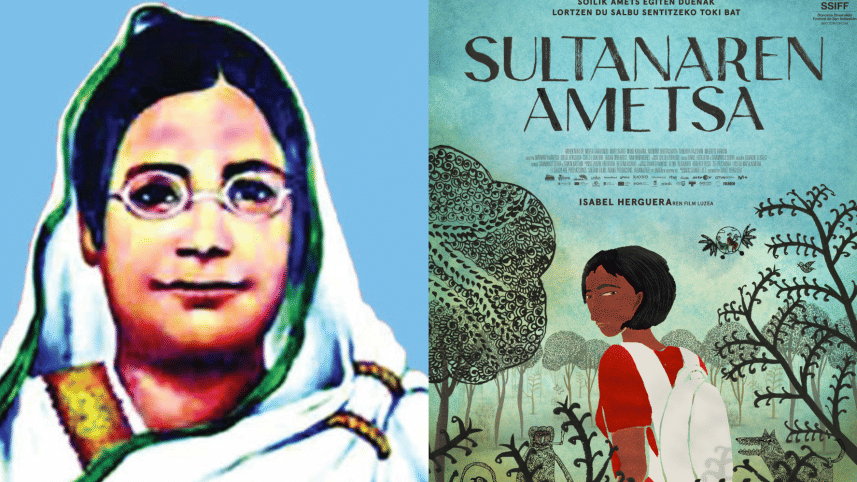Begum Rokeya's 'Sultana's Dream' come to life through Spanish filmmaker

The San Sebastián International Film Festival kicked off on Friday in Spain, showcasing a diverse array of cinematic talents from around the world. Among the standout entries was Spanish filmmaker Isabel Herguera's debut feature, "Sultana's Dream" ("El sueño de la sultana"), which celebrated its world premiere at the festival.
"Sultana's Dream" draws inspiration from the eponymous 1905 book by the renowned Bengali feminist thinker and writer, Begum Rokeya. The story unfolds as it follows a Spanish artist residing in India who serendipitously encounters a science fiction narrative centered on "Ladyland," a utopian society where women hold sway over the nation while men retreat to seclusion and assume responsibility for domestic chores.

Isabel Herguera, the visionary director behind the film, shared the story of how she stumbled upon the book that sparked her creative journey. She recounted, "The book fell into my hands by chance while I was sheltering from the rain in an art gallery in India." The book, featuring a red cover with a striking illustration of a woman piloting a spaceship, piqued her curiosity instantly. It was none other than Begum Rokeya's "Sultana's Dream," a feminist utopia from 1905. The moment she laid eyes on it, Herguera knew she had to translate this literary gem into a film.
"Sultana's Dream" uses hand-drawn, 2D, digital, and watercolour animation. The film seamlessly weaves together three narrative threads: the director's personal encounters, the life story of Rokeya Hossain, and the story of Ladyland from the original tale. The visual script was done simultaneously with the writing process, with cut-out techniques recreating Begum Rokeya Hossain's life and capturing the ambience of shadow theatre, a popular form of entertainment across India before the advent of cinema.
For the portrayal of Ladyland, the film adopts the aesthetic of Mehndi (temporary tattoo art) and innovatively brings it to life through animation. Numerous workshops in India engaged different artists who contributed to the design of characters and elements that grace the final images.



 For all latest news, follow The Daily Star's Google News channel.
For all latest news, follow The Daily Star's Google News channel.
Comments